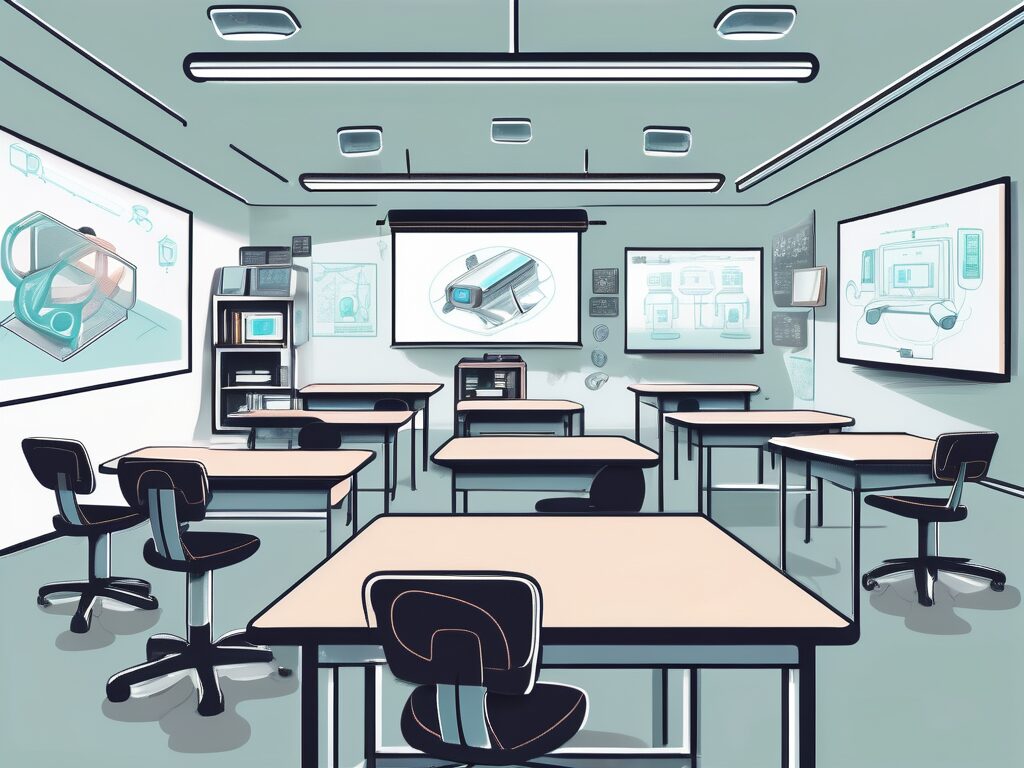In the dynamic world of education, teaching methods are constantly evolving to meet the needs of diverse learners. As an educator, it’s crucial to stay abreast of these changes, especially if you’re teaching in a cosmopolitan city like Hong Kong. One way to do this is by obtaining an International Postgraduate Certificate in Education (IPGCE), a qualification that equips teachers with the skills and knowledge to implement modern teaching techniques. In this piece, we’ll explore four such techniques that are particularly relevant for IPGCE holders in Hong Kong.
1. Differentiated Instruction
First on our list is differentiated instruction, a teaching approach that tailors instruction to meet individual needs. Whether it’s through content, process, product, or learning environment, differentiated instruction provides multiple avenues for students to take in information and make sense of concepts.
For instance, in a diverse classroom in Hong Kong, you might have students who are visual learners, while others prefer auditory or kinesthetic learning. By incorporating a mix of instructional methods – say, visual aids, spoken instructions, and hands-on activities – you can cater to these different learning styles and ensure that all students are engaged.
Moreover, differentiated instruction allows for flexibility in pacing. Some students may grasp new concepts quickly, while others may need more time. By allowing students to work at their own pace, you can ensure that no one is left behind.
Implementing Differentiated Instruction
Implementing differentiated instruction in your classroom involves a good deal of planning. You’ll need to assess your students’ learning styles, interests, and readiness levels, and then design lessons that cater to these diverse needs.
For example, you might use project-based learning, where students work on real-world problems that interest them. This not only engages students but also allows them to work at their own pace and in their preferred learning style.
2. Inquiry-Based Learning
Next up is inquiry-based learning, a student-centered approach that encourages students to ask questions and seek out answers. This method fosters curiosity and critical thinking, skills that are particularly important in today’s information-saturated world.
In an inquiry-based classroom, the teacher acts as a facilitator, guiding students as they explore concepts and ideas. This is a departure from traditional teaching methods, where the teacher is the primary source of knowledge.
For example, instead of lecturing about the water cycle, you might pose a question like, “How does rain form?” and then guide students as they conduct experiments, make observations, and draw conclusions. This active learning approach not only deepens understanding but also makes learning more engaging and fun.
Implementing Inquiry-Based Learning
Implementing inquiry-based learning involves creating a supportive and collaborative learning environment. You’ll need to encourage students to ask questions, think critically, and take risks. This might involve setting up learning stations, using open-ended questions, and providing resources for independent research.
Moreover, assessment in an inquiry-based classroom is often formative, meaning it’s ongoing and used to guide instruction. For example, you might use quizzes, observations, and student reflections to gauge understanding and adjust your teaching strategies as needed.
3. Technology-Integrated Learning
With the advent of digital technology, classrooms are no longer confined to four walls. Technology-integrated learning leverages digital tools to enhance learning and teaching. This can involve using educational apps, online learning platforms, and digital multimedia resources.
In a city like Hong Kong, where technology is a part of everyday life, integrating technology into your teaching can make learning more relevant and engaging for students. For example, you might use virtual reality to take students on a virtual field trip, or use a learning management system to facilitate online discussions and collaborative projects.
Implementing Technology-Integrated Learning
Implementing technology-integrated learning involves more than just incorporating digital tools into your lessons. You’ll also need to consider digital literacy – that is, the ability to use technology effectively and responsibly.
This might involve teaching students how to conduct online research, use digital tools for collaboration, and practice digital citizenship. Moreover, you’ll need to ensure that technology is used to enhance learning, not just for its own sake.
4. Social-Emotional Learning
Last but not least, social-emotional learning (SEL) is a holistic approach that focuses on developing students’ social and emotional skills. These include self-awareness, self-management, social awareness, relationship skills, and responsible decision-making.
In a multicultural city like Hong Kong, where students come from diverse backgrounds, SEL can help foster a supportive and inclusive classroom environment. For example, you might use role-playing activities to teach empathy, or mindfulness exercises to promote self-regulation.
Implementing Social-Emotional Learning
Implementing SEL involves integrating social and emotional skills into your curriculum and classroom practices. This might involve using literature to discuss emotions, incorporating cooperative learning activities to build relationship skills, or using reflective practices to promote self-awareness.
Moreover, SEL isn’t just for students. As a teacher, you can model social and emotional skills in your interactions with students, and also take care of your own social-emotional well-being.
In conclusion, these modern teaching methods can help create a dynamic and inclusive learning environment that caters to the diverse needs of students in Hong Kong. By obtaining an IPGCE, you can gain the skills and knowledge to implement these methods and make a difference in your students’ learning.
Transform Your Teaching Career with IPGCE
Ready to elevate your teaching methods and advance your career? Join the UK’s #1 Teacher Training Course, the International Postgraduate Certificate in Education (iPGCE), and overcome the barriers that hold many educators back. With our program, you’ll not only enhance your qualifications, leading to increased interview callbacks, but you’ll also unlock new opportunities for career progression, enjoy a substantial salary increase, and connect with a global network of professionals. Embrace the flexibility of online study to balance your professional development with your current commitments. Don’t let inadequate credentials or isolation limit your potential. Become 65% more adaptable in global education systems and join a community of satisfied educators who have seen their careers transform. Join the UK’s #1 Teacher Training Course today and make a significant impact in your teaching journey.

